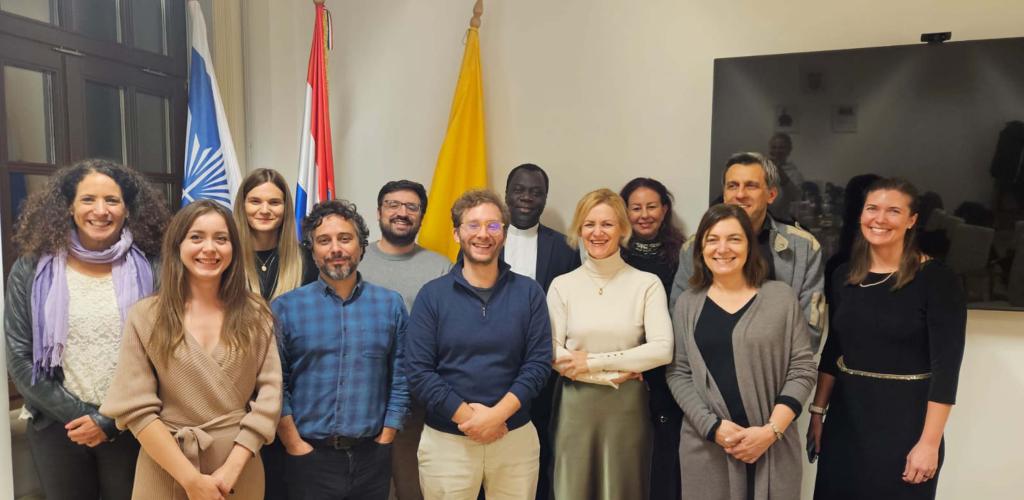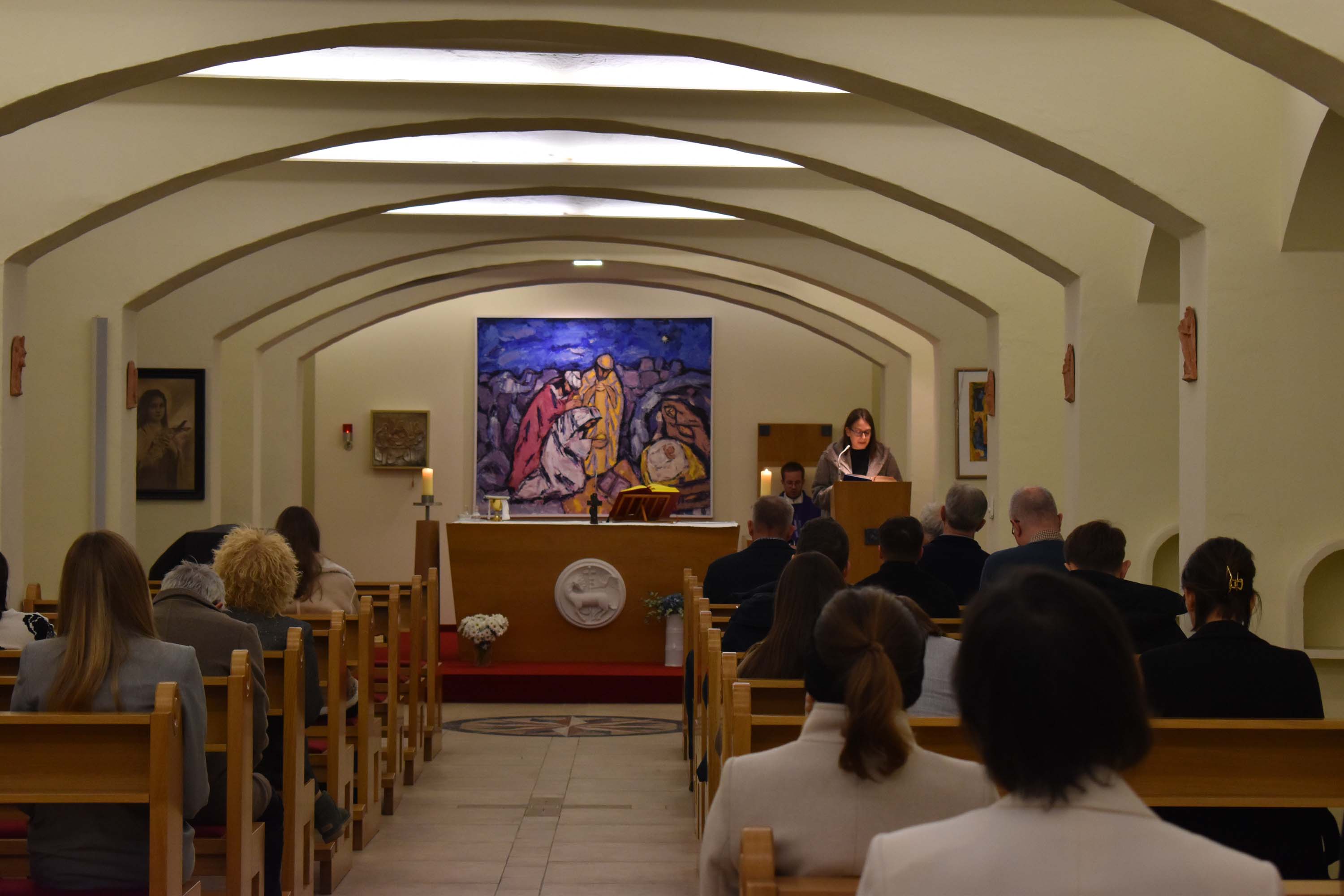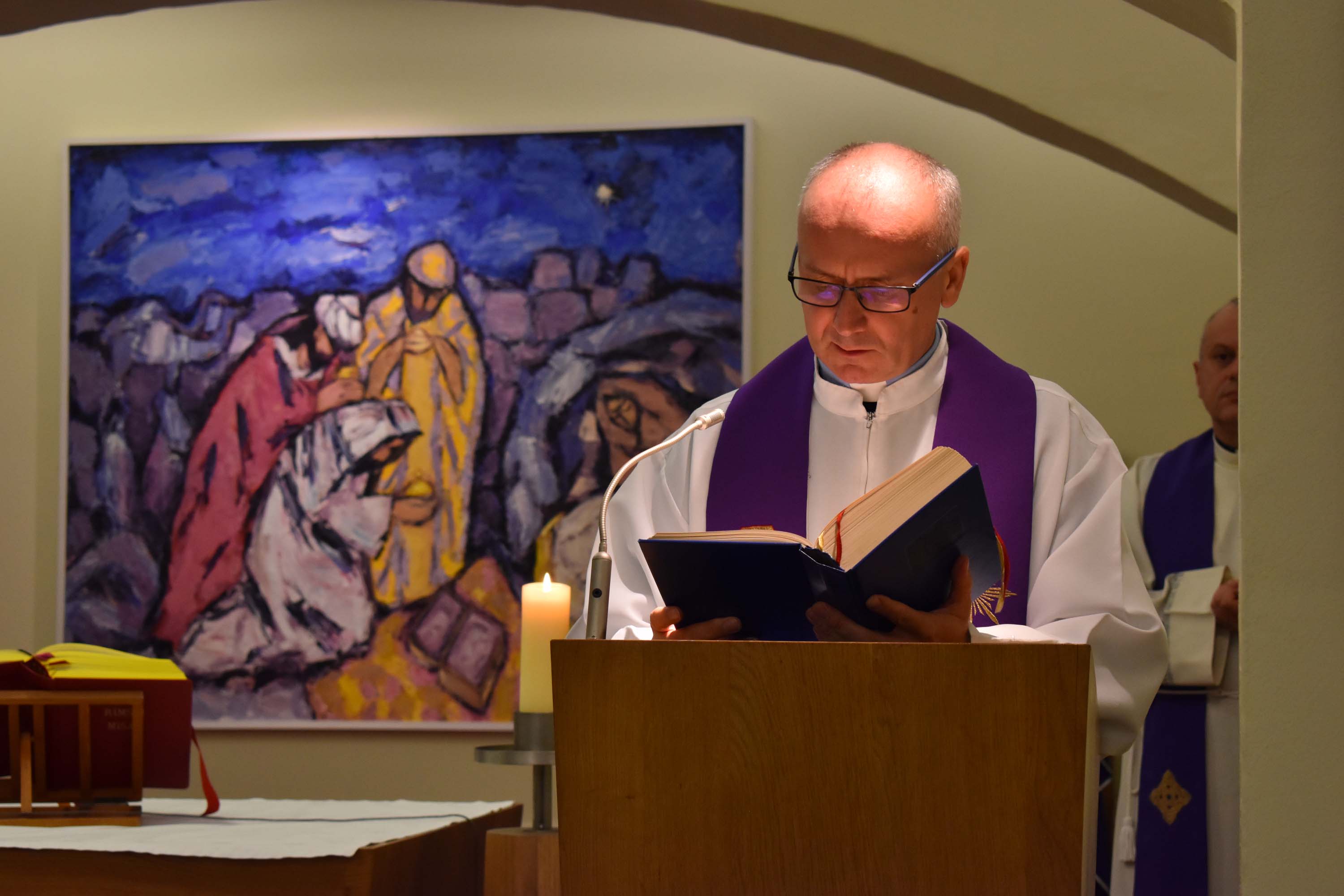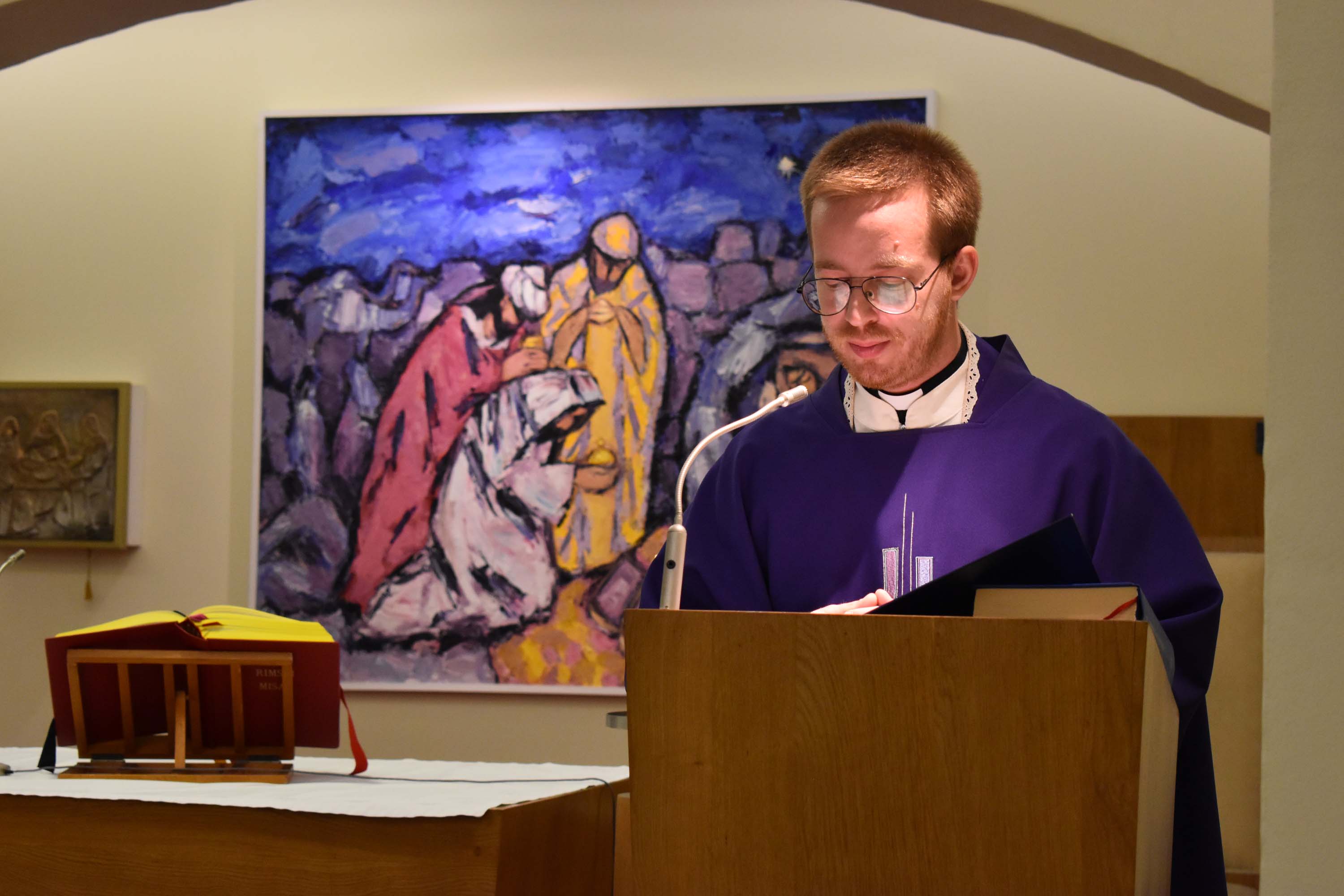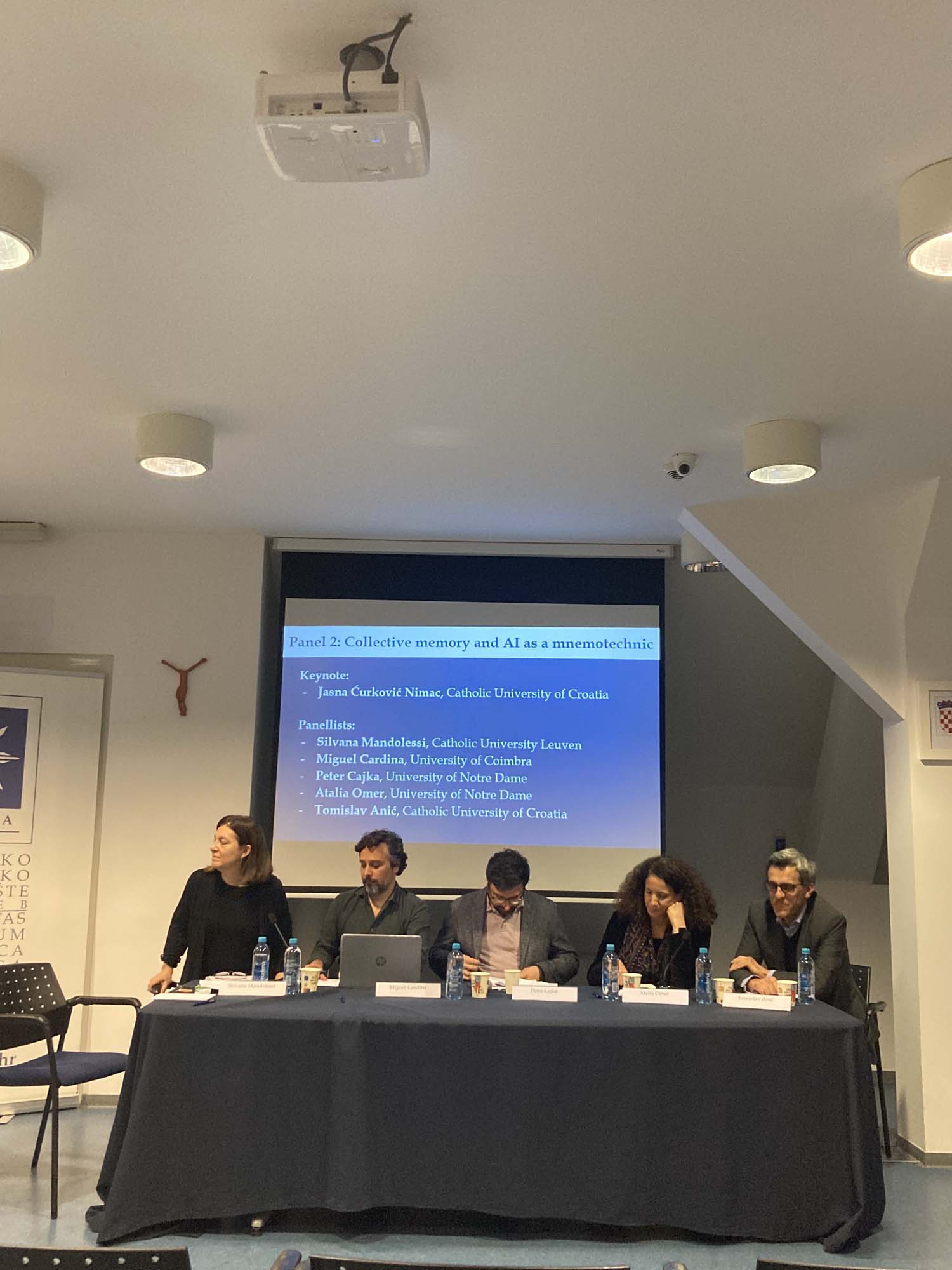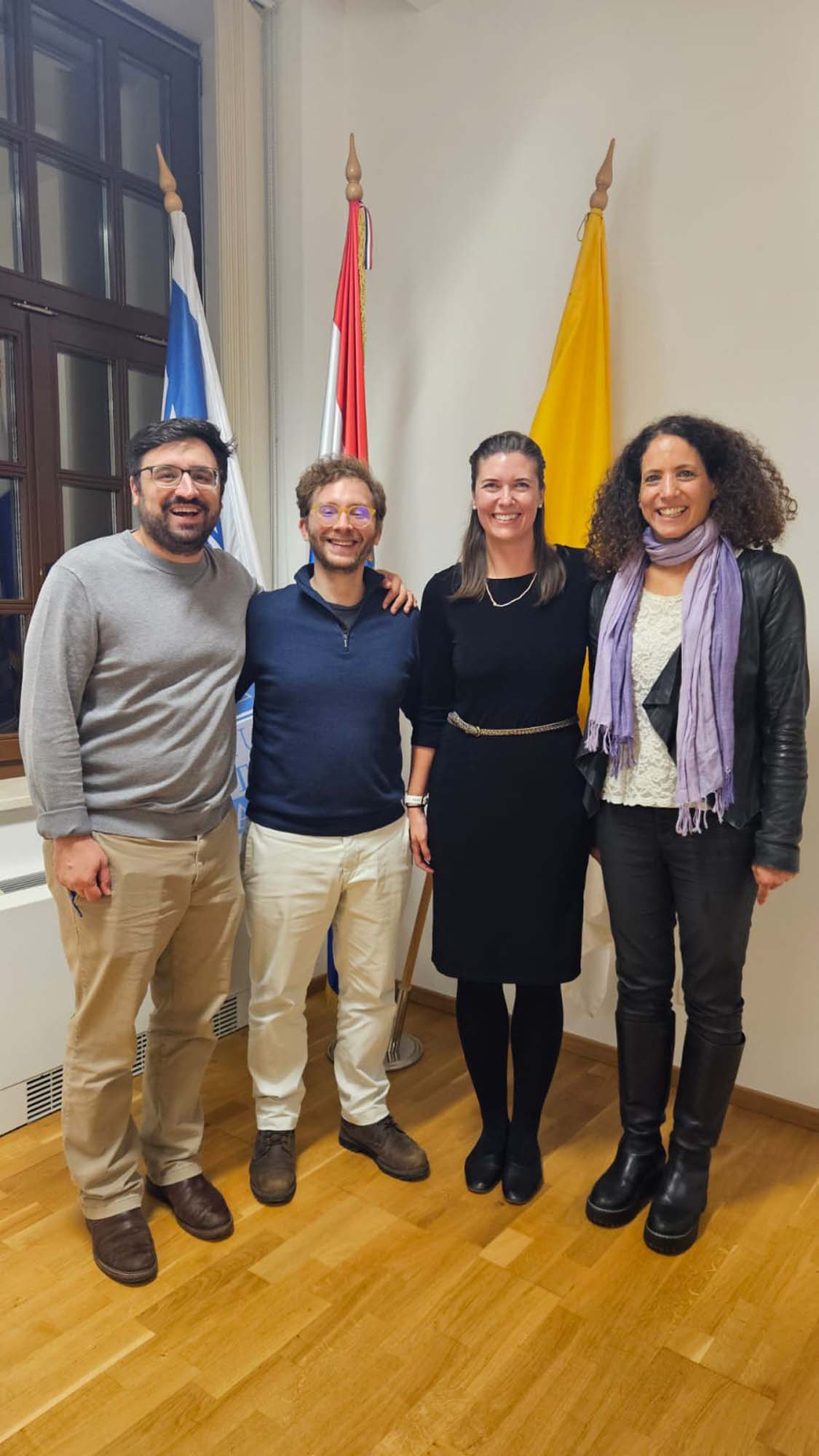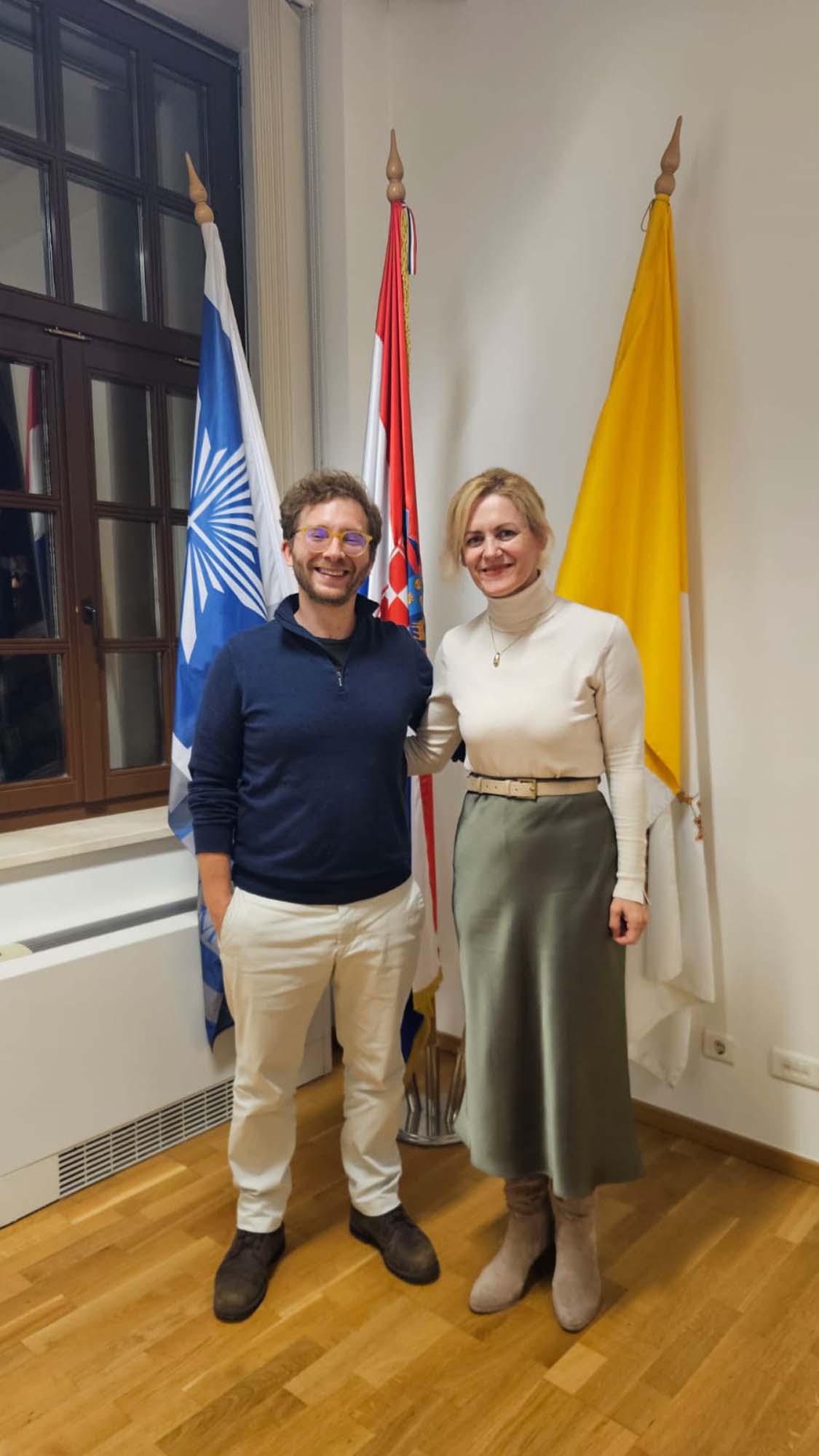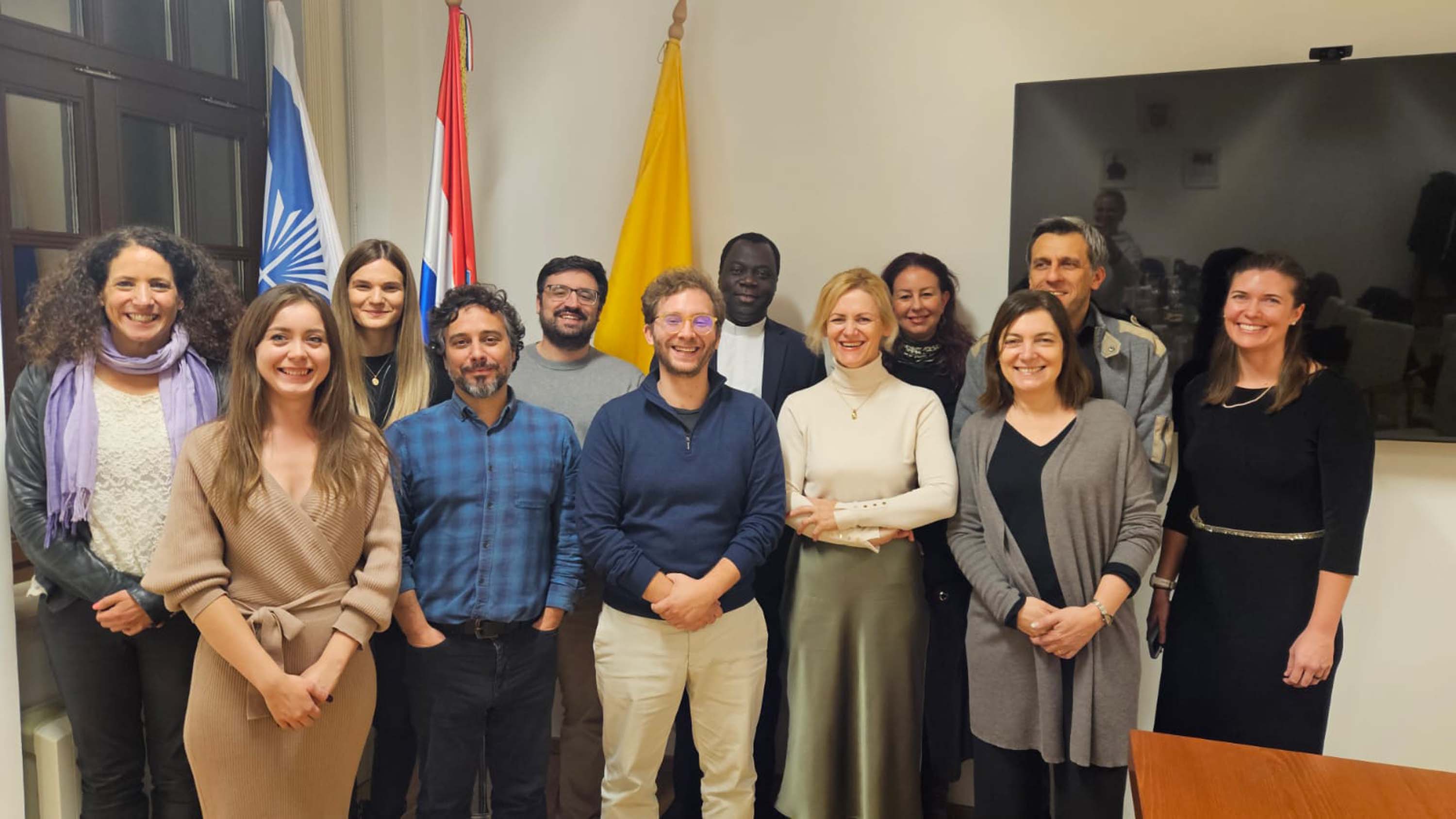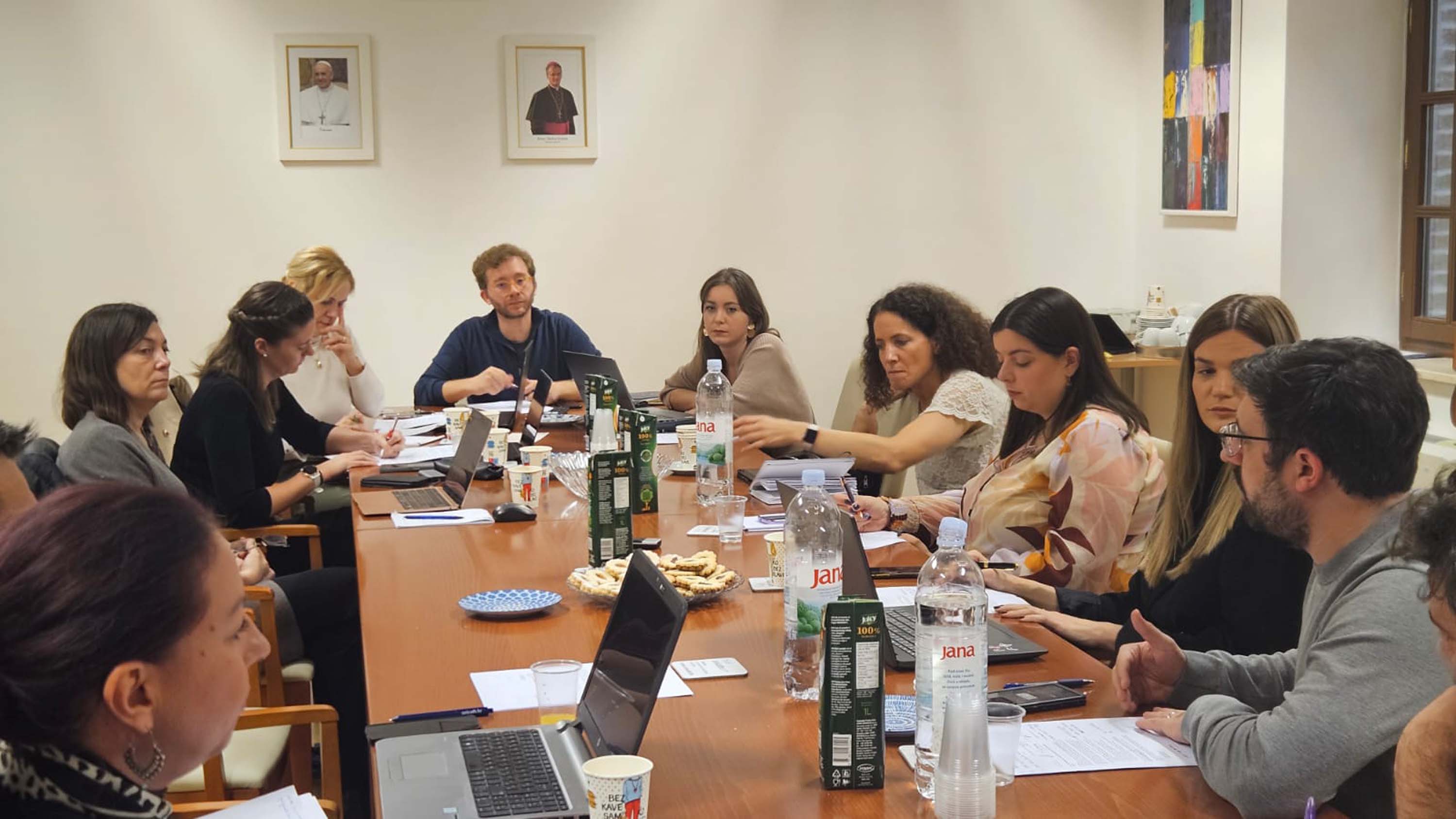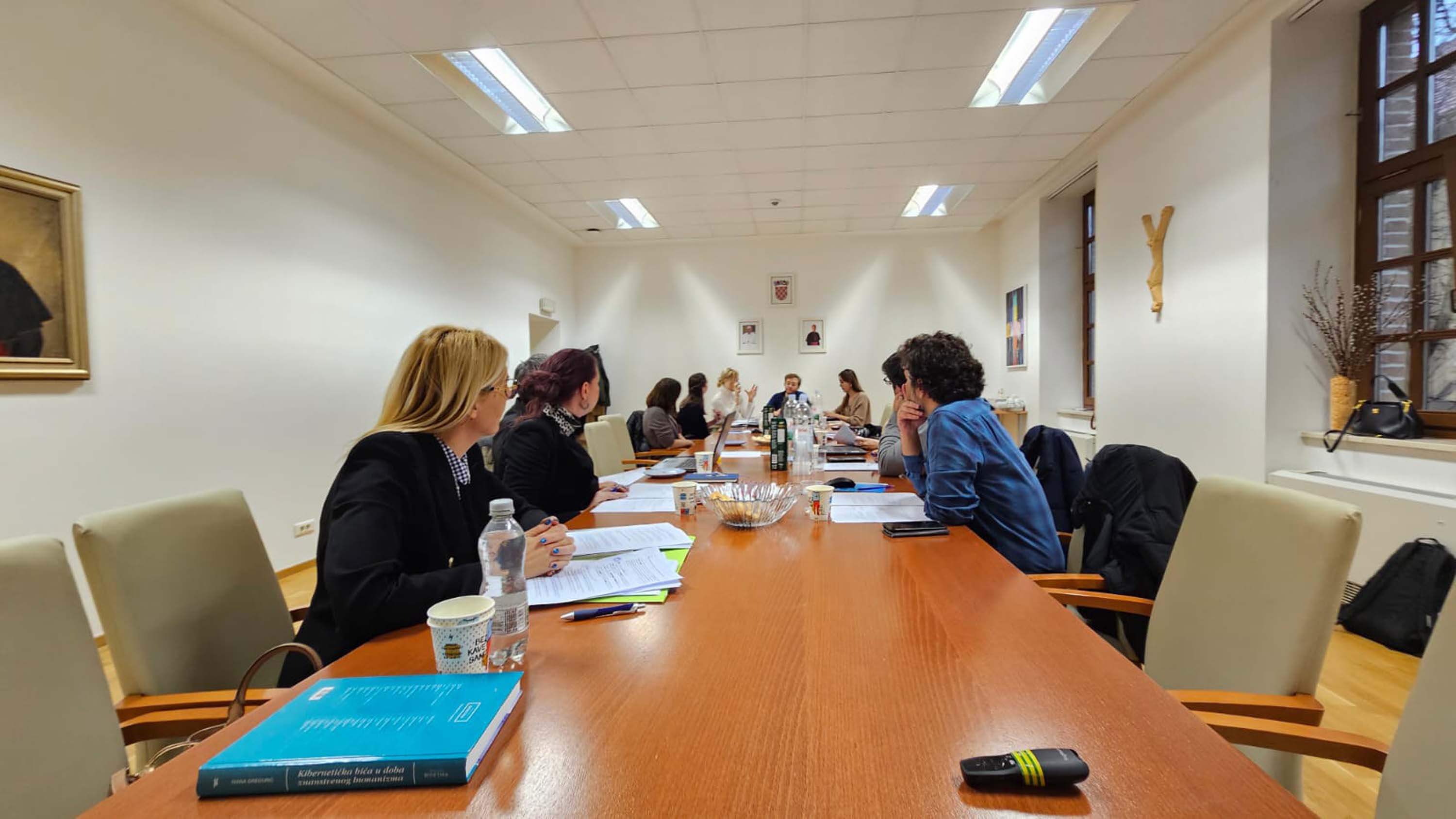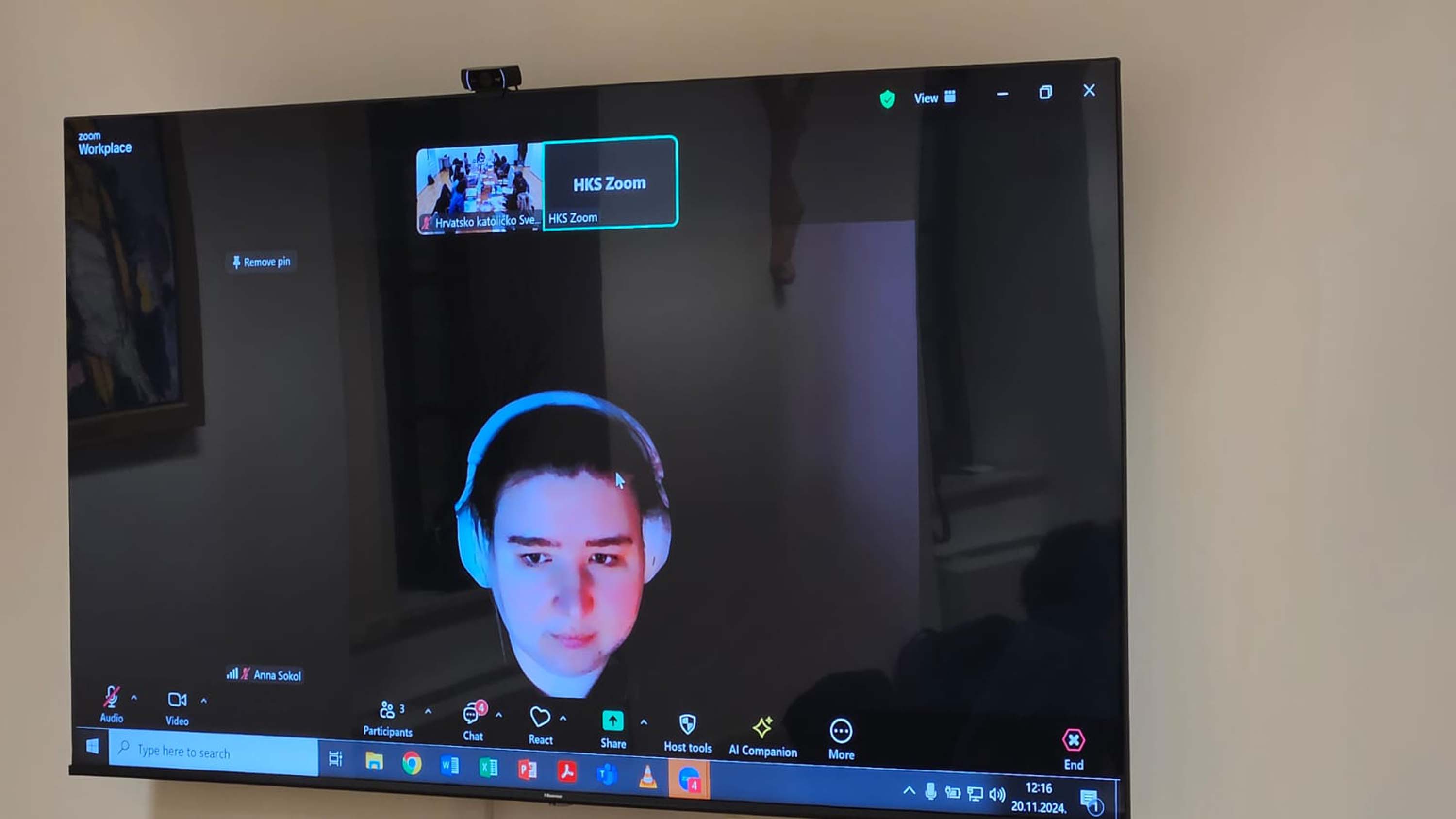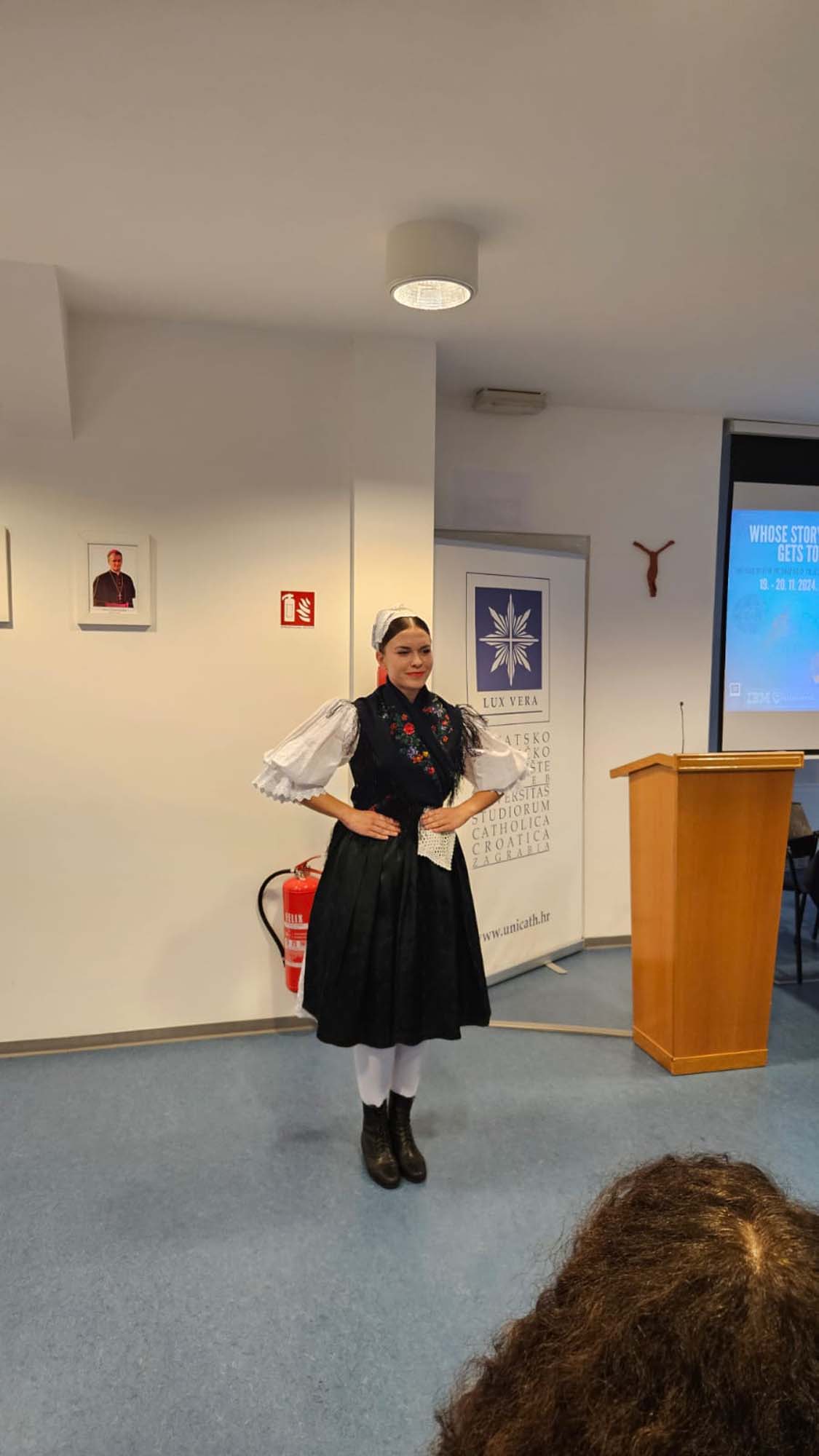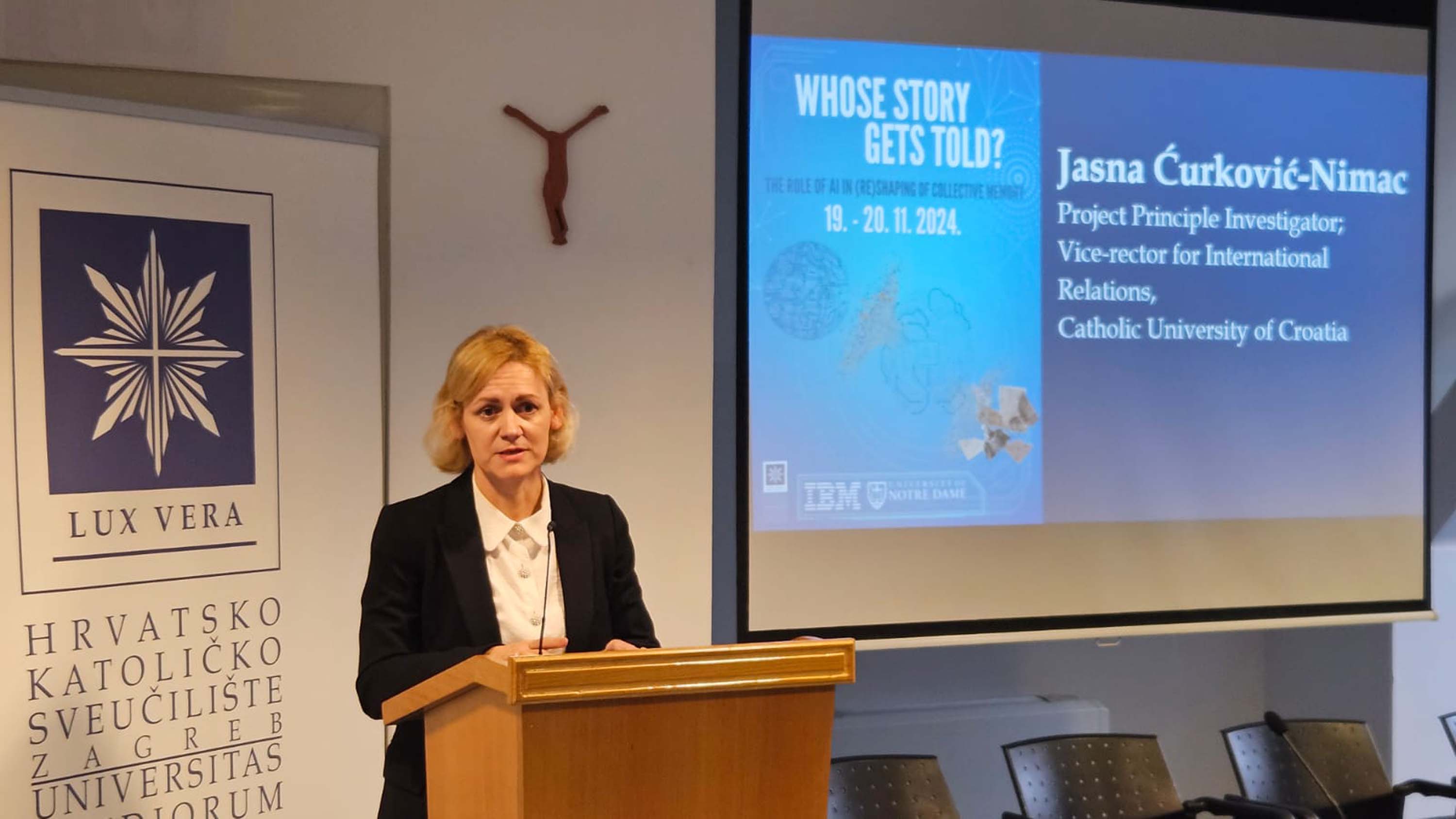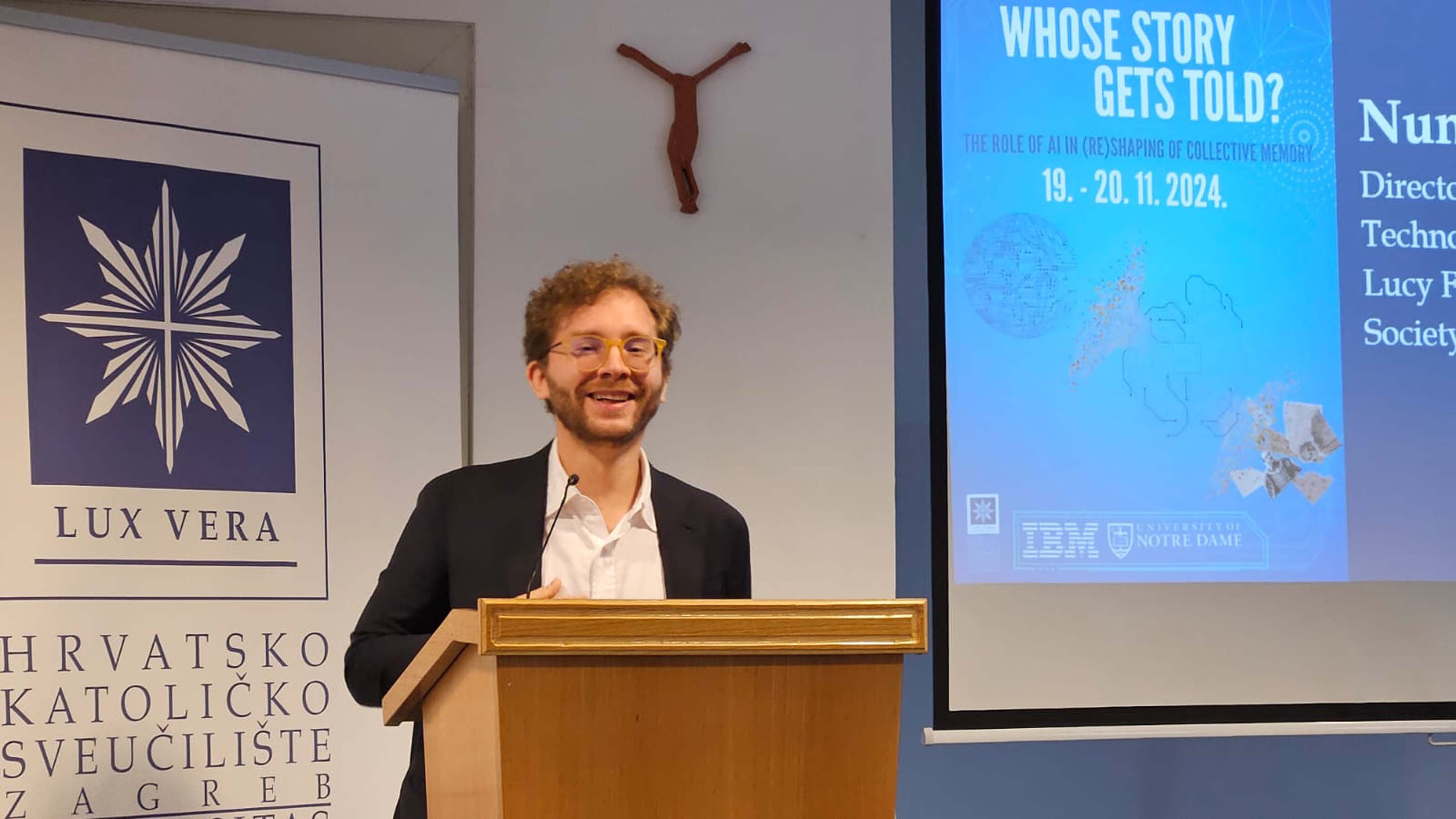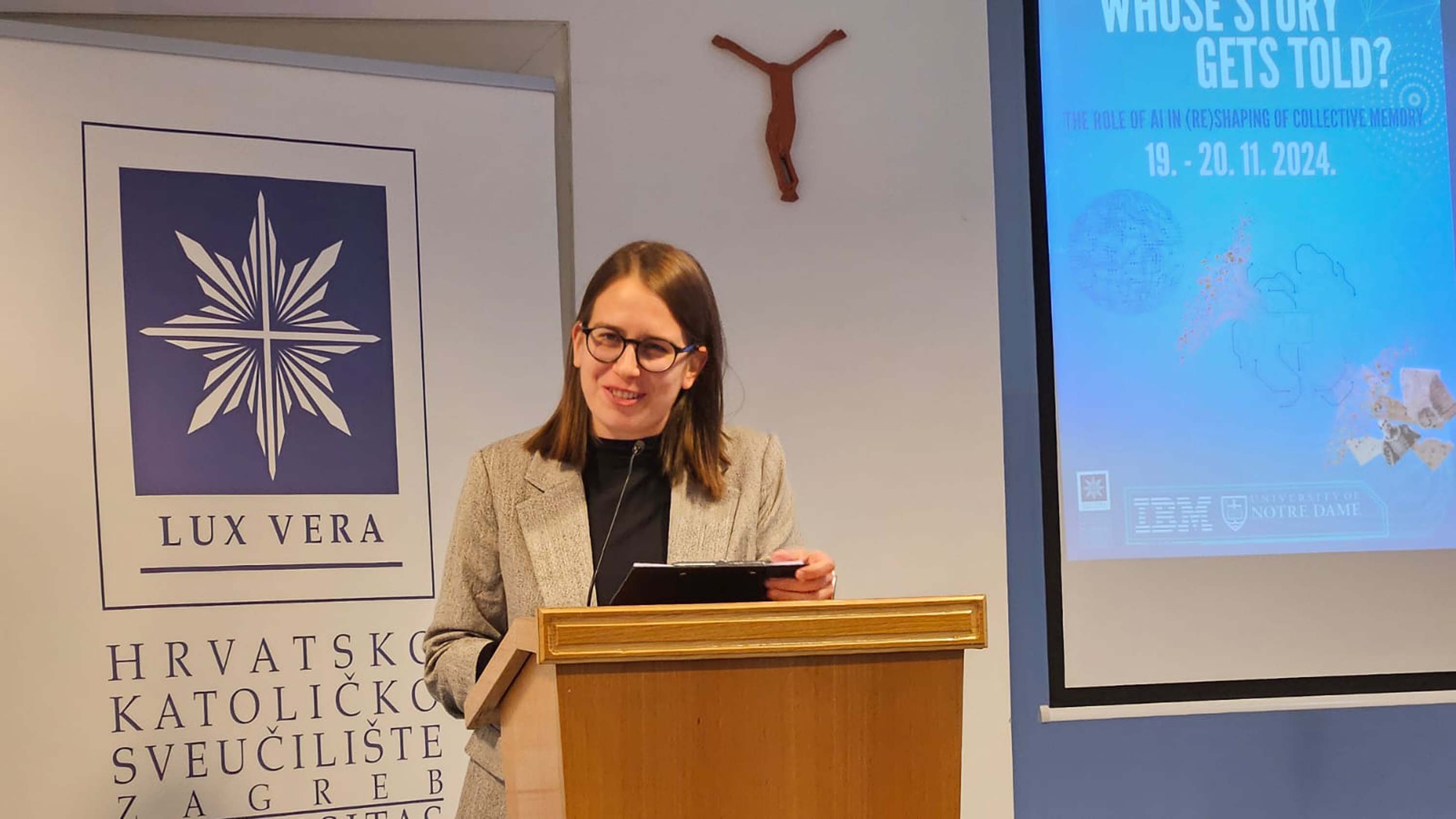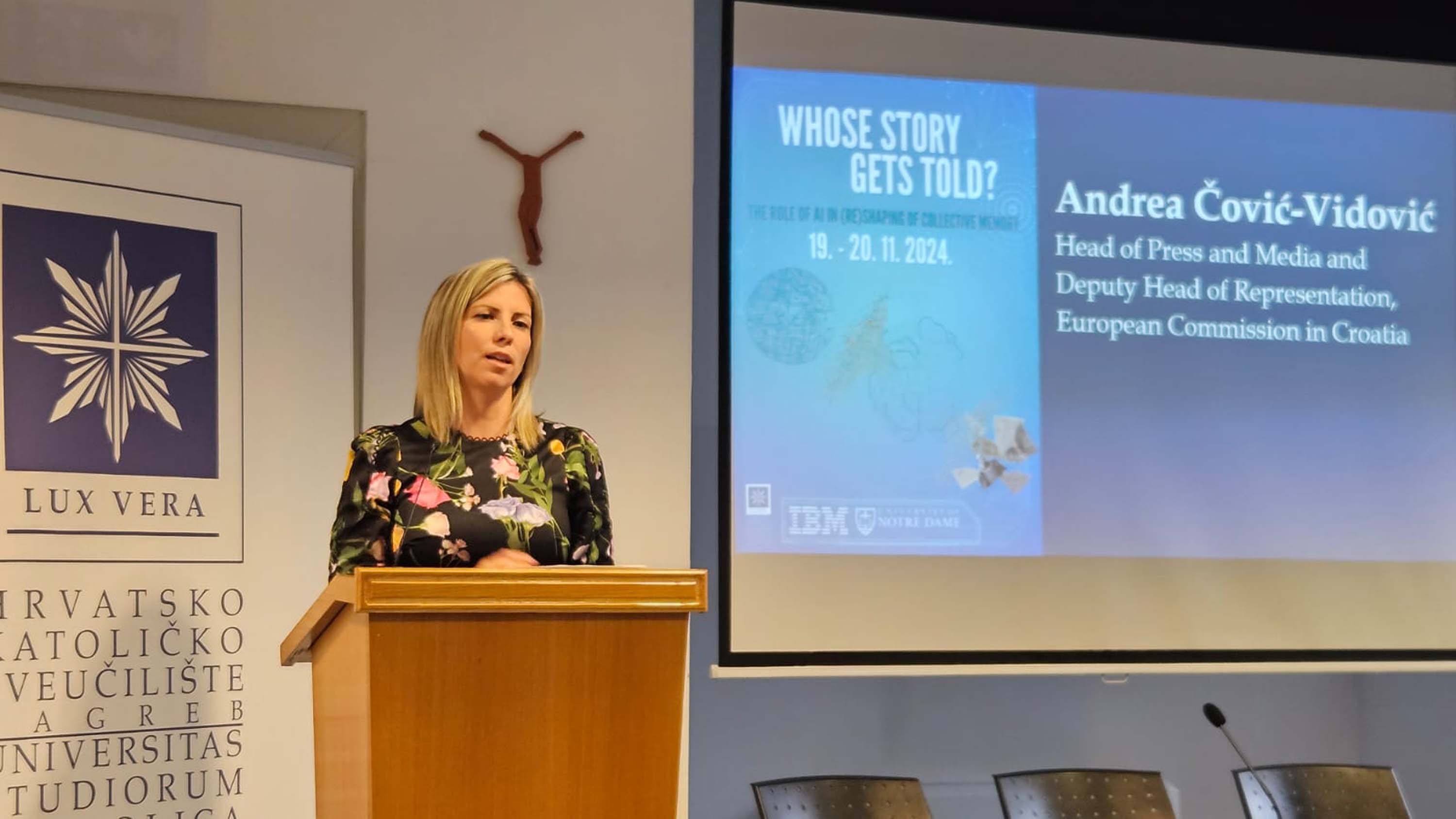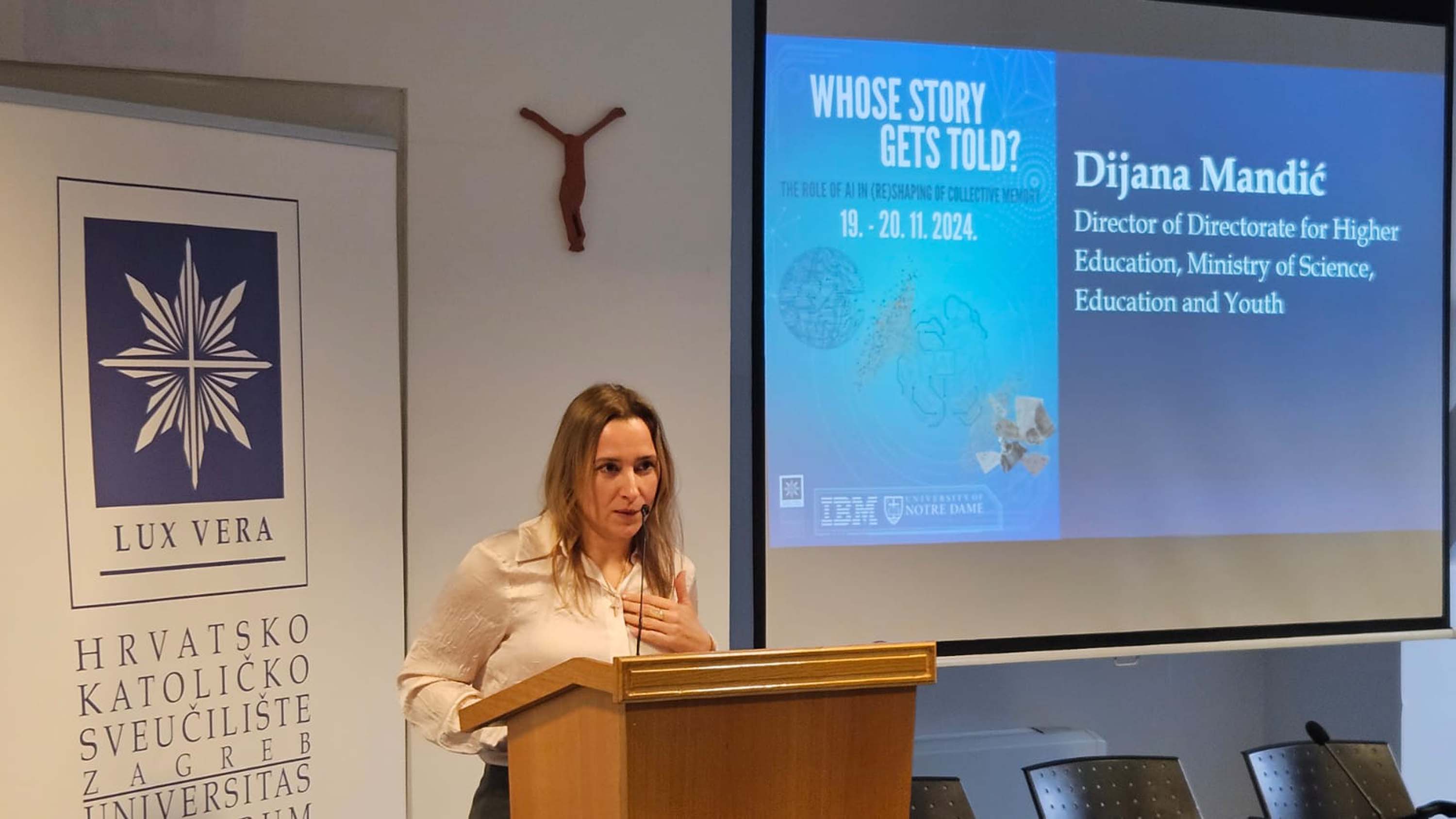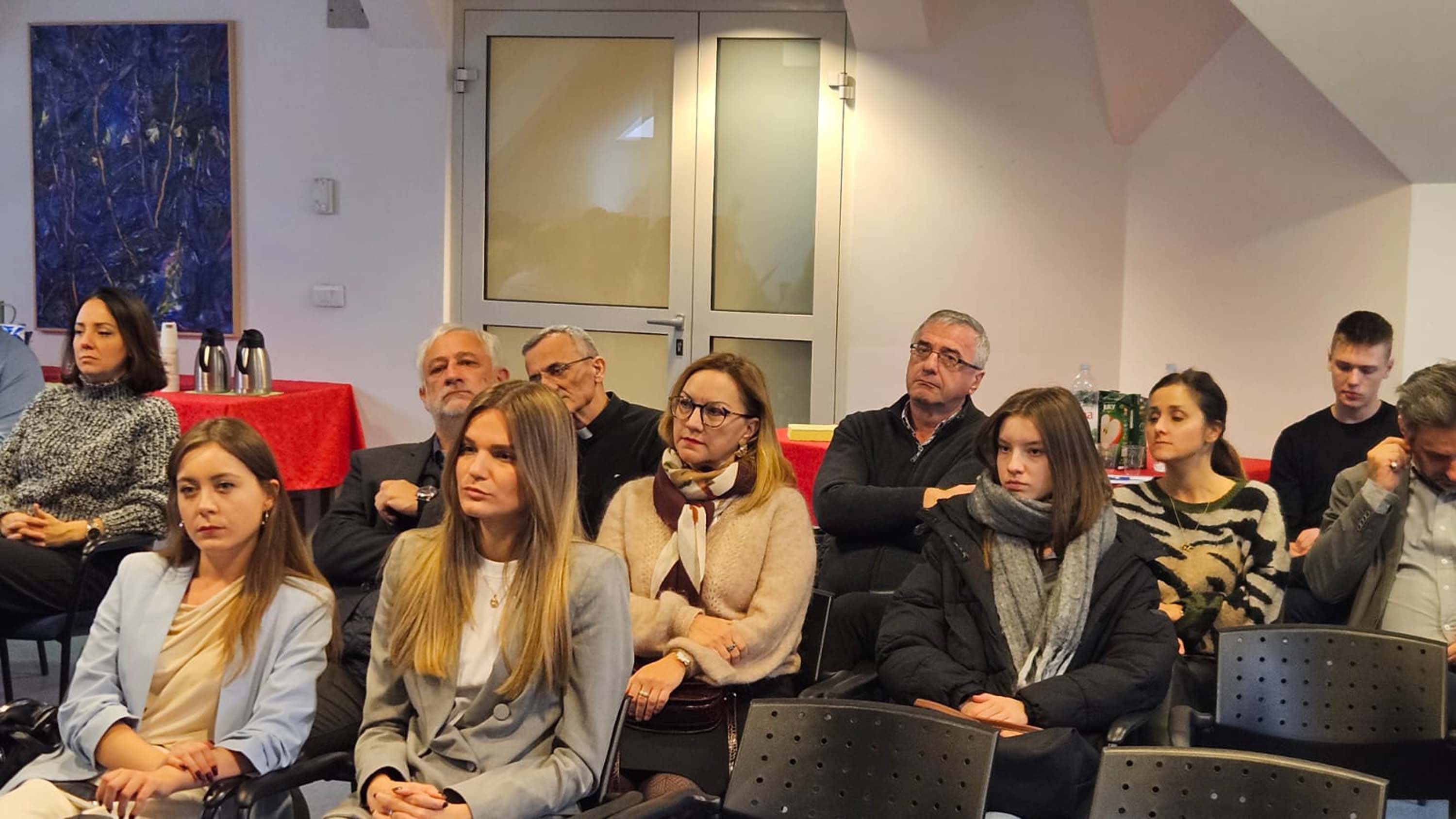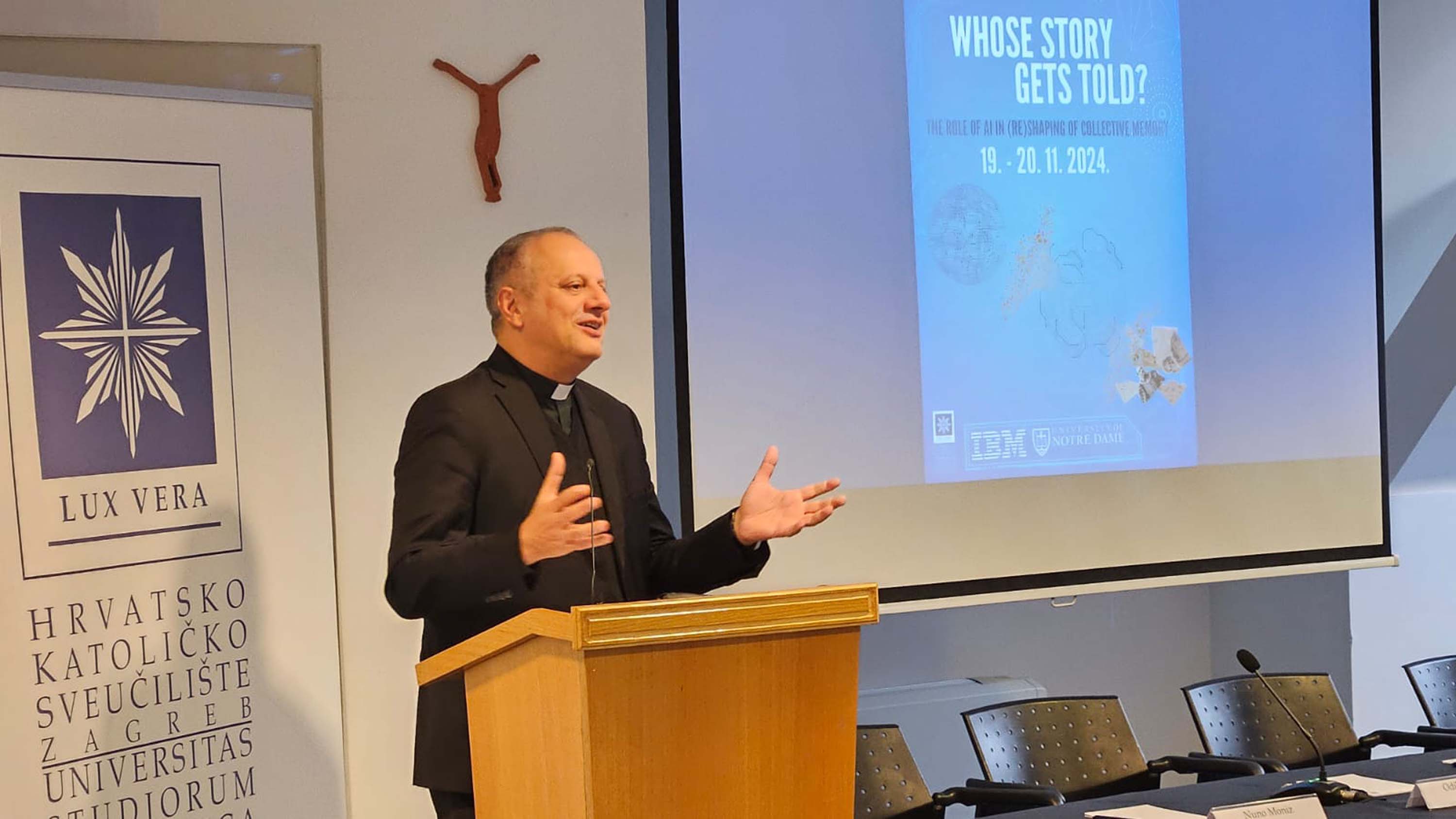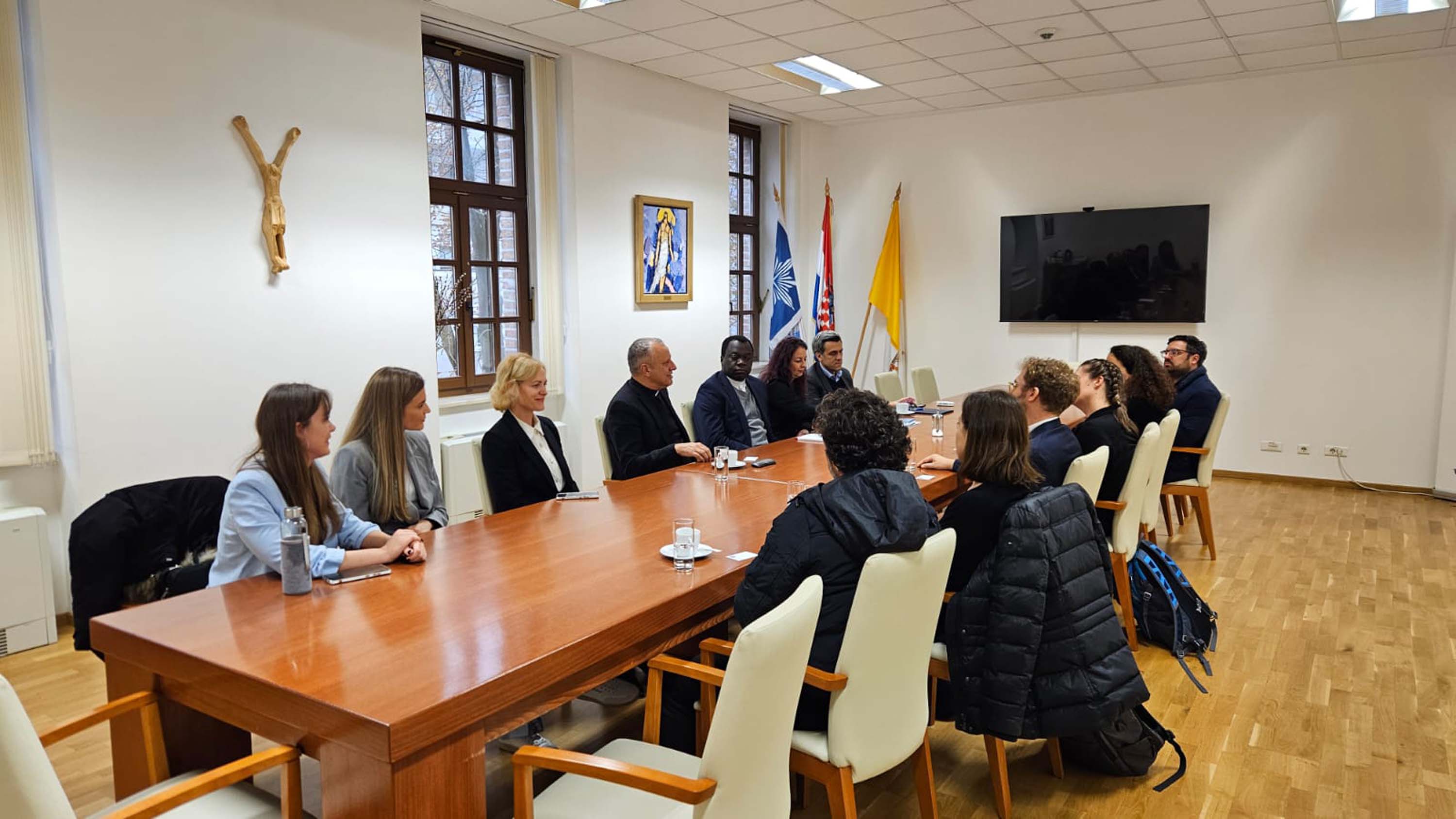Share
A conference on artificial intelligence and (re)shaping the process of creating collective memory at CUC
On Tuesday, November 19, 2024, a meeting was held under the title "WHOSE STORY GETS TOLD?" The role of AI in (re)shaping of collective memory" within the project "How LLMs Modulate our Collective Memory and its Ethical Implications". The mentioned project is led by prof. Jasna Ćurković Nimac, PhD, in cooperation with prof. Nuna Muniz, director of the Notre Dame-IBM Technology Ethics Lab.
At the beginning of the gathering, the rector of CUC, prof. Željko Tanjić, PhD, expressing satisfaction that CUC is hosting a discussion on this important topic, wishing the participants a fruitful discussion, exchange of opinions and new insights.
Dijana Mandić, director of the Directorate for Higher Education in the Ministry of Science, Education and Youth, and Andrea Čović Vidović, head of the Representation and media manager of the European Commission in Croatia, shared opening greetings and their brief reflections on the impact of artificial intelligence on learning, memory and changing historical narratives.
The audience was also briefly addressed at the beginning by prof. Muniz and Prof. Ćurković Nimac as project partners and briefly described how the cooperation came about and reported on what has been done on the project so far.
After the opening greetings, Mia Franceković, a student from the University Department of Communication sciences and a member of the Folk Ensemble "Ivan Goran Kovačić", performed the Međimurje song "Tica vuga ljepo poje". In 2018, the Međimurska popevka was included in UNESCO's list of intangible cultural heritage, and with this piece of music, we wanted to highlight the richness of cultural heritage that is passed down through the generations.
The first panel on the ethics of artificial intelligence was introduced by Nuno Muniz with his short presentation, and Odilon Singbo from the Department of Theology at CUC, Ivana Greguric from the Faculty of Croatian Studies, University of Zagreb, and Robert Kopal from Effectus University discussed the ethical challenges of artificial intelligence, transhumanism and about the (un)readiness of school systems in the context of this topic.
A second panel followed, in which Silvana Mandolessi from the Catholic University of Leuven (Belgium), Miguel Cardina from the University of Coimbra (Portugal), Peter Cajka and Atalia Omer from the University of Notre Dame (USA) and Tomislav Anić from CUC participated. Jasna Ćurković Nimac gave an introductory presentation and moderated a discussion in which they talked about the ways in which artificial intelligence is (re)shaping the process of creating collective memory. The difference between history and memory, as well as history and chronology, was highlighted, and scientists presented their insights on the ways in which ChatGPT generates data on the Israeli-Palestinian conflict, on the war in Vietnam, the Homeland War in Croatia, etc.
In addition to the held panel discussions, on Wednesday, November 20, 2024, a group of experts began drafting a document on the use of ChatGPT in the field of education with a special emphasis on memory, conflicts, collective consciousness and the past.
Let us note here that the Notre Dame–IBM Technology Ethics Lab is a key element of the Ethics Initiative of the University of Notre Dame, which focuses on the promotion of human values in technology through interdisciplinary research in the field of ethics of new technologies and, through projects, strives to offer practical models and applied solutions with regard to implementation ethics in technology development.
